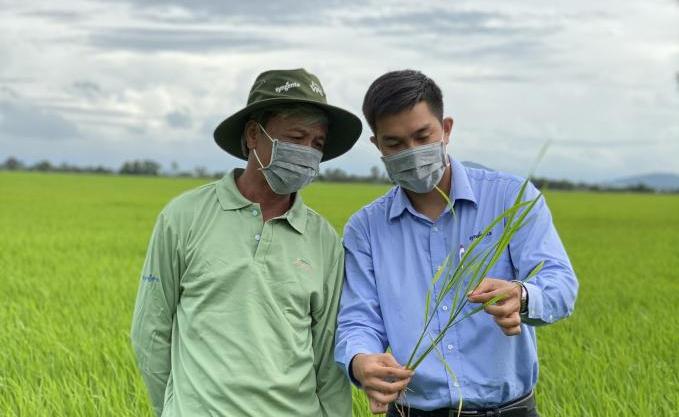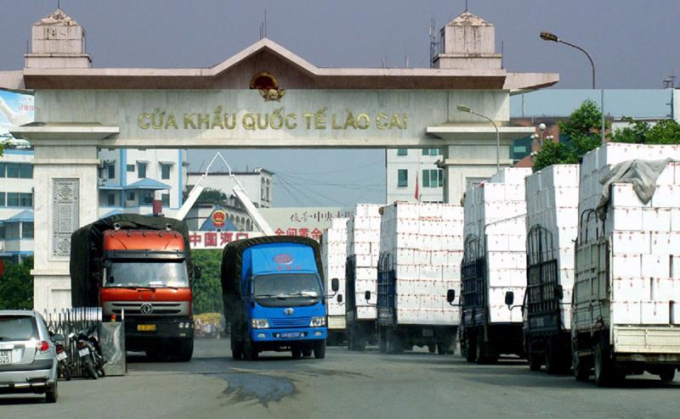November 28, 2025 | 06:13 GMT +7
November 28, 2025 | 06:13 GMT +7
Hotline: 0913.378.918
November 28, 2025 | 06:13 GMT +7
Hotline: 0913.378.918

7 key agricultural areas were selected by the SPS Vietnam Office for the training courses.
Following the guidance of Minister Le Minh Hoan and Deputy Minister Tran Thanh Nam at the Workshop on Promoting Agricultural Products Production and Consumption on May 8, the SPS Vietnam Office identified the key tasks in May 2022 as follows: Coordinate with units to organize training, develop communication programs on SPS commitments in the new generation free trade agreement (FTA), Orders 248 and 249.
At the same time, the Office selected 7 provinces to conduct the training. These are all key agricultural areas, including: Bac Giang, Son La, Gia Lai, Binh Phuoc, Long An, Dong Thap, and Ca Mau.
Among these localities, Bac Giang is preparing for the lychee harvesting period (from the end of May); plums and mangoes harvesting for Son La. The provinces in the Mekong Delta will also soon harvest jackfruit, mango and durian.
Ngo Xuan Nam, Deputy Director of SPS Vietnam Office, said that because the time required to harvest each type of agricultural product is short (only about two months), the localities need to actively plan for promotion and consumption right from the beginning of the season.
"The main market for Vietnamese agricultural products is still China. We need to find a way to adapt to their new regulations, including Order 248, Order 249. This is also a path for our country's agricultural products to access new markets such as the US and Europe", Mr. Nam shared.
In parallel with local coordination, the SPS Vietnam Office continues to work with the Governmental Office on the progress of submitting to the Prime Minister, the Project on "Improving the effectiveness of WTO's SPS Agreement and SPS commitments in FTAs".
Along with that, the Office will continue to implement Notice No. 864/TB-BNN-VP on Order 248. On this basis, SPS Vietnam will coordinate with specialized departments under the Ministry of Agriculture and Rural Development to help businesses perform customs duties at border gates.

Because China is still maintaining the "Zero Covid" policy, our country's exports of agricultural products and goods have be affected from the end of 2021.
Previously, on April 19, SPS Vietnam Office Director, Mr. Le Thanh Hoa signed Official Letter No. 101/SPS-BNNPTNT and issued to the People's Committees of the provinces and cities, the Departments of Agriculture and Rural Development, the Departments of Industry and Trade, along with other associations and industries.
In this Official Letter, the SPS Office clearly indicated 5 registered focal points for 18 groups of exported food products, regulated by China, namely: Plant Protection Department; Department for Quality Management of Agriculture, Forestry and Fisheries; Department of Animal Health (MARD); Department of Food Safety (Ministry of Health); Department of Science and Technology (Ministry of Industry and Trade).
As of May 8, China General Administration of Customs has issued 2,069 product codes belonging to 1,993 businesses. In which, there are 1,127 businesses introduced by 5 Vietnamese authorities, 866 self-registered businesses.
In particular, the SPS Vietnam Office has supported 29 businesses to submit written requests for help in relation to export registration to the Chinese market; classified and synthesized information from 60 businesses that self-registered product codes online and sent to China Customs.
In order to ensure thorough information as well as enhance connectivity with localities and businesses, SPS Vietnam Office proposed that the Office under the Ministry of Agriculture and Rural Development open an electronic document flow for SPS Vietnam.
Translated by Nguyen Hai Long

(VAN) According to Mr. Vo Minh Thanh, Director of the Tay Ninh Department of Agriculture and Environment, Resolution 57 has created a new development pathway for the locality, shifting from traditional toward modern agriculture.
/2025/11/26/4909-2-154329_878.jpg)
(VAN) Pearl grouper farming in HDPE cages not only delivers economic efficiency but also contributes to protecting the environment, creating jobs, and promoting marine-based experiential tourism.

(VAN) The model of making a living under the forest canopy through the agroforestry system in Van Son commune, Bac Ninh province, is expected to generate an annual income of approximately VND 30 million/ha.

(VAN) Many enterprises in Can Tho are harnessing natural energy and reducing greenhouse gas emissions in their production processes, thereby contributing to the promotion of a sustainable green transition.
/2025/11/24/3536-2-112800_176.jpg)
(VAN) Dong Nai now has tens of thousands of hectares of forests certified for sustainable management, and this area will continue to be expanded in the coming period.

(VAN) Vinh Ha hamlet (Dai Xuyen commune, Hanoi) is shifting away from small-scale farming as households adopt bioscurity into their breeder chicken models.

(VAN) Heavy rains make aquatic species more vulnerable to disease. Proactive water management and high-tech systems help farmers prevent outbreaks and protect yields.